The RCEM Presidential Election 2019 is now open for voting to all Fellows. We are pleased to have three excellent candidates – Dr Carole Gavin, Dr Katherine Henderson and Dr Chris Moulton. Below each candidate sets out their manifesto and why you should vote for them.
Carole Gavin
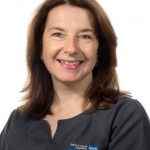 I have been a consultant in Salford for 18 years during which time emergency medicine has developed to become a major specialty with RCEM a key stakeholder in the development of national emergency care policy. Despite considerable progress we live in uncertain political and economic times and are dealing with increasingly complex patients in unsafe, overcrowded departments. Consequently, the coming years are likely to present the biggest challenge yet for RCEM and the task of President will not be easy; nevertheless I remain optimistic we can achieve our core aims and objectives. During my career I have undertaken a variety of medical management and RCEM roles with the aim of improving the delivery of emergency care locally and nationally which I believe have given me the necessary skills and insight to succeed as President. These include Clinical Director, Patient Safety Lead, Chair of the RCEM North West Regional Board, RCEM CPD Lead and RCEM Lead Examiner. I have also developed a portfolio career in Forensic and Legal Medicine. As a result I have wide experience of working collaboratively with colleagues from many diverse backgrounds who may hold conflicting views to my own. As a member of College Council for six years I have also been involved in the strategic work of RCEM and understand what is required to successfully work with governments, regulators and other agencies to effect positive change.
I have been a consultant in Salford for 18 years during which time emergency medicine has developed to become a major specialty with RCEM a key stakeholder in the development of national emergency care policy. Despite considerable progress we live in uncertain political and economic times and are dealing with increasingly complex patients in unsafe, overcrowded departments. Consequently, the coming years are likely to present the biggest challenge yet for RCEM and the task of President will not be easy; nevertheless I remain optimistic we can achieve our core aims and objectives. During my career I have undertaken a variety of medical management and RCEM roles with the aim of improving the delivery of emergency care locally and nationally which I believe have given me the necessary skills and insight to succeed as President. These include Clinical Director, Patient Safety Lead, Chair of the RCEM North West Regional Board, RCEM CPD Lead and RCEM Lead Examiner. I have also developed a portfolio career in Forensic and Legal Medicine. As a result I have wide experience of working collaboratively with colleagues from many diverse backgrounds who may hold conflicting views to my own. As a member of College Council for six years I have also been involved in the strategic work of RCEM and understand what is required to successfully work with governments, regulators and other agencies to effect positive change.
I believe the key priorities for RCEM over the next three years to be:
1. Influencing government strategy to develop evidence based emergency care systems with patient safety at the core. We need to engage constructively whilst speaking out against misguided strategies that may result in further burdens on our services. ED overcrowding is an unacceptable risk to both patients and staff and we must continue to do everything possible to communicate this to the public and policy makers whilst working collaboratively to address it.
2. Developing more sustainable careers for emergency physicians of all grades. Excellent patient care can only be delivered by well trained, motivated staff who are respected and valued. Recruitment and retention is still a major problem and we need to continue to support the development of flexible careers to make emergency medicine a sustainable specialty.
3. Increasing RCEM engagement with all colleagues regardless of geographical location to ensure that all Members and Fellows know their views are represented and that RCEM strategy is disseminated as widely as possible. We need to understand the particular challenges faced by those working outside the major conurbations and in the devolved nations to make sure that the quality of emergency care is not a postcode lottery.
My previous experience has convinced me that progress towards these goals can only be achieved through collaborative working. I believe that my proven ability to engage constructively with both clinical and non-medical colleagues to achieve the common goal of improving emergency care for patients and staff is what will enable me, if elected, to fulfil the responsibilities of the post of President.
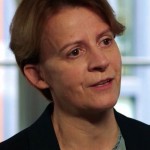 The next RCEM president will face an Emergency Care system under significant pressure and a real concern that our famed resilience is running dangerously low. Whoever is elected will need to be able to articulate our concerns and reiterate our solutions with energy, clarity and pragmatism. I believe I have the qualities to do this effectively.
The next RCEM president will face an Emergency Care system under significant pressure and a real concern that our famed resilience is running dangerously low. Whoever is elected will need to be able to articulate our concerns and reiterate our solutions with energy, clarity and pragmatism. I believe I have the qualities to do this effectively.
I believe we need to regain control of our EM discipline, be clear about what we do and get back our confidence as EM specialists. We have become the safety net for failures in other parts of the health and social care system.
My priorities would be:
1) ‘Stop Corridor Medicine’: Corridor medicine is unacceptable. No patient should spend a night on a trolley in a corridor. Whichever nation you work in and whatever target measure is used, there are stories of unsafe practice with ambulance cohorting and patients on trolleys spending prolonged periods in the ED. We are a first world health service and these events are a disgrace. We, as a specialty, have to stop tolerating the unacceptable.
2) Workforce: A focus on retention. We cannot afford to lose great staff because the job entails continual firefighting.
a. Trainees- ensure flexible world class training which has an emphasis on learning rather than assessment and delivers the skills needed to be an effective EM Consultant.
b. Consultants and SAS Doctors – ensure useful tools to support a fulfilling deliverable job.
c. Nurses- make links with EM Nursing groups to support standards and enhance the team approach.
d. Other professional groups- maintain momentum on developing a sustainable alternative EM workforce that enhances patient care and the training opportunities for all.
3) Measuring Emergency Care: Be at the front of the professional debate about how to do this well but challenge any target that diverts clinical care from the sickest patients.
4) Member value from RCEM: Prioritise our educational and Patient Safety activity. Our College funds must be invested in resources most valued by our members.
5) Teamwork: Increased links with other Royal Colleges across the UK. The whole of the Acute Take system is under pressure and relationships are strained. We need joint working on roles and responsibilities at the interface with Primary care and the inpatient teams. The 10 year plan focus on Same Day/ambulatory care may give us an opportunity to make this happen.
Why vote for me?
I will give a fresh positive look to RCEM. I have been an EM Consultant for 20 years and Clinical Lead in a DGH and most recently in a large ED. I have been on the RCEM Executive and on Council as Regional Chair. I have experience dealing with local, regional and national issues and of nurturing a department through tough times. I know how much effective safe Emergency care matters to patients and I am clear about my values.
I believe I would be able to represent the current and future workforce of EM with positivity, passion, dedication, imagination and integrity.
Chris Moulton
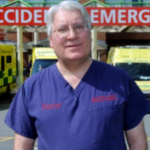 Emergency Medicine is a great job which provides a vital service to the community. It is never boring and provides us with a fulfilling and fascinating career. As a specialty, we have so much to be proud about and yet the negative aspects of under-resourced and over-crowded emergency departments dominate both the press and public perception. I believe that by emphasising evidence-based solutions to the current problems, the College can present a more positive view and convince the next generation of emergency physicians that a satisfying and worthwhile job awaits them. Our patients must also be reassured by our resolve to provide first-class emergency care.
Emergency Medicine is a great job which provides a vital service to the community. It is never boring and provides us with a fulfilling and fascinating career. As a specialty, we have so much to be proud about and yet the negative aspects of under-resourced and over-crowded emergency departments dominate both the press and public perception. I believe that by emphasising evidence-based solutions to the current problems, the College can present a more positive view and convince the next generation of emergency physicians that a satisfying and worthwhile job awaits them. Our patients must also be reassured by our resolve to provide first-class emergency care.
As Vice-President of RCEM, I have been in a very privileged position in which to meet many of our Fellows and Members and to hear their views and ideas. Consequently, I believe that we must strengthen the two-way communication between the College and the devolved nations / English regions in order to ensure that RCEM serves the providers of front-line emergency care. I am also determined to:
- Continue RCEM’s drive to assure sustainable EM careers for all grades and ages of staff. This includes the availability of flexible working, portfolio careers and changes in working practices for doctors as they grow older. Both male and female emergency physicians have requirements that, if met, allow them to live and work more productively. It is essential that our staff grade and associate specialist colleagues are included in every way.
- Emphasise the importance of teaching and training at all times. Our trainees must feel supported and helped to reach their career objectives; workload should not obstruct these aims and poor behaviour towards trainees must not be tolerated.
- Promote research, quality improvement and better service delivery at every opportunity. The current momentum must not be lost. We need properly-funded EM academic staff in all countries and regions.
- Support exchanges and training opportunities with other countries. Our current programme is starting in India and will soon include both Pakistan and Sri Lanka. I am leading the development of funded EM humanitarian posts.
- Minimise the unacceptable variation that currently occurs between EDs. As RCEM’s representative on the national GIRFT programme, I have been shocked to find that workload varies 10-fold between staff in different EDs and to see the extremely poor environments in which some of our colleagues care for their patients.
I have an established track record of delivery in all of these areas and of frequent media appearances using facts to explain solutions to crowding and trolley waits in our EDs. I have campaigned and lobbied for more hospital beds, more capacity in social care and for an expansion in ED staffing of all types. If I have the honour to be elected as your President, I will work hard on your behalf to ensure that our EDs are a great place for staff to work and a safe place for patients to be treated.
Voting is open until 12pm Friday 1 March 2019. Fellows have been emailed details of their unique login to cast their vote and can do so here.
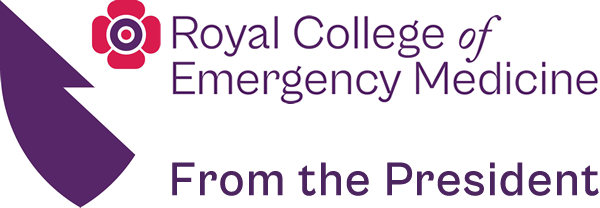

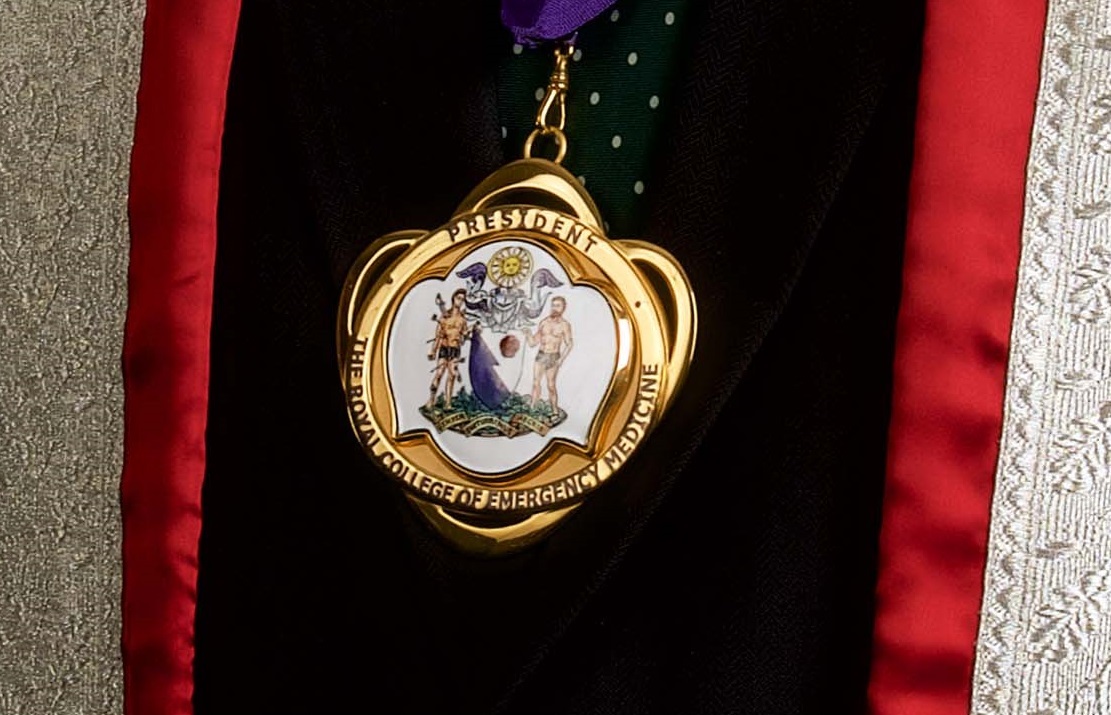
All candidates have great profile, quite difficult to choose among them!
all candidates good i go with gavin